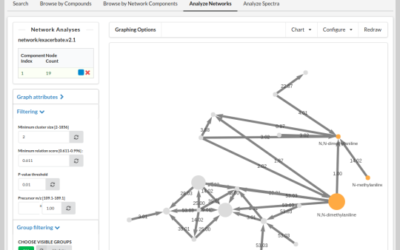Abterra Bio awarded $1.8M NIH SBIR to extend antibody repertoire analysis software, REPTOR
Next-generation sequencing is a valuable readout for antibody discovery campaigns, but current software does not address the real pain points of analysis. Abterra Biosciences has developed Reptor software to enable visualization and interrogation of large-scale antibody repertoires. “We initially developed Reptor as an internal platform for our own use in antibody discovery and repertoire analysis, but we found that there was a serious need for tools to analyze next-generation sequencing data in the broader community”, says Chief Scientific Officer Dr. Stefano Bonissone.
With a recently awarded $1.8M NIH SBIR grant, development on Reptor will accerate, including the addition of new features for improved antibody discovery that have been validated in Abterra Bio’s own lab.

Current antibody discovery approaches, such as hybridoma, phage display, and single B cell screening, all significantly limit the sampling of the in vivo antibody immune response, thereby potentially missing important therapeutic candidates. Approaches to better deconvolute the antibody response with high-throughput sequencing technologies have shown utility in the research setting. However, using these large-scale data to directly perform antibody discovery remains a challenge due to limited tools with unvalidated features.
Reptor is an easy-to-use tool for scientists to enhance their antibody discovery campagns using next-generation sequencing and antibody repertoire analysis.
“The Reptor software has become an integral part of our own antibody discovery processes, and we’re excited to share the core capabilities with our customers and partners, says “CEO Dr. Natalie Castellana.
The Reptor software beta version has been released for a limited time. Sign up below to be part of the limited beta trial, and to receive updates on Reptor releases.
Related Posts
Phase 1 SBIR Award-Quorum Cloud
Quorum Cloud® is a computational platform that organizes tandem MS data into molecular networks. Molecular networks connect related compounds that differ by a mutation, modification, or adduct. Quorum Cloud® increases NP compound annotations compared to previous...

